analysis East Asia
'Not just funding': Why the new China-led SCO development bank could impact the US dollar's dominance, geopolitics
The establishment of the Shanghai Cooperation Organization (SCO) development bank would give 10 Eurasian countries an alternative to Western-dominated lenders like the World Bank and IMF, say analysts.
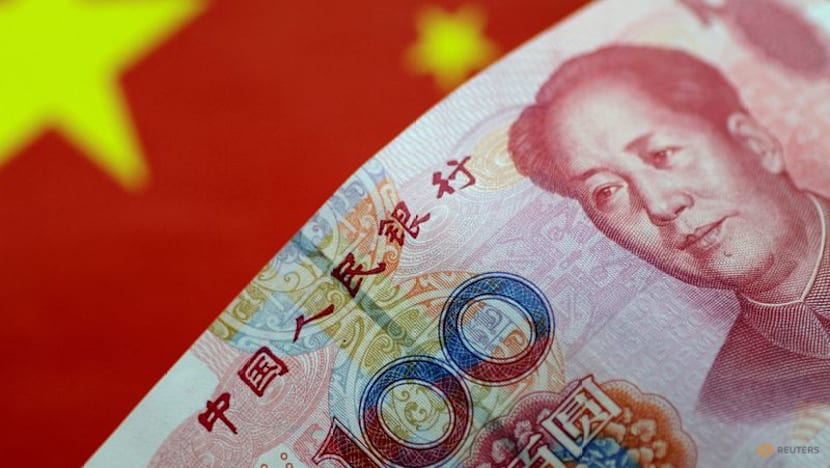
A Chinese yuan note. REUTERS/Thomas White/Illustration/File Photo

This audio is generated by an AI tool.
SINGAPORE: China’s push for the Shanghai Cooperation Organization (SCO) to set up a development bank is its latest effort to internationalise the yuan and challenge Western-dominated financial institutions like the World Bank and International Monetary Fund (IMF), analysts say.
They add that the multilateral lender could offer a lifeline to countries facing Western sanctions, while giving emerging economies an alternative source of funding and a hedge against dollar dependence.
Speaking at the SCO summit in Tianjin earlier this month, Chinese President Xi Jinping announced plans for a development bank - calling on countries to accelerate its creation.
“It should be established as soon as possible to provide stronger support for the security and economic cooperation of member states,” Xi said.
SCO member states include Russia and Iran which face Western sanctions, as well as Kazakhstan, Kyrgyzstan, Tajikistan, Uzbekistan, India, Pakistan, Belarus and China itself.
If successful, the SCO Bank could be more than just another lender, experts told CNA - it would join establishments like the BRICS New Development Bank (NDB) and the Asian Infrastructure Investment Bank (AIIB) as part of a growing network of Chinese-led multilateral institutions aimed at reshaping global finance by loosening the dollar’s grip.
"Chinese banks are huge," said Charles Chang, a finance professor at Fudan University in Shanghai, noting that four of the world's largest banks - the Industrial and Commercial Bank of China (ICBC), Agricultural Bank of China (ABC), China Construction Bank (CCB) and Bank of China (BOC) - were Chinese.
"There’s incredible capital accumulation there. As a result, when and how they move will necessarily have a big impact,” Chang said.
The SCO Bank comes at a critical juncture, as tariff tensions mount and the dollar’s dominance endures. As US Treasury Secretary Scott Bessent told Bloomberg in August: “We have extraterritorial power with the dollar.”
“Why do Russia, China and Iran want to come off these dollar payment rails? Because when there’s bad behaviour, we can make it very difficult for them with sanctions,” Bessent said.
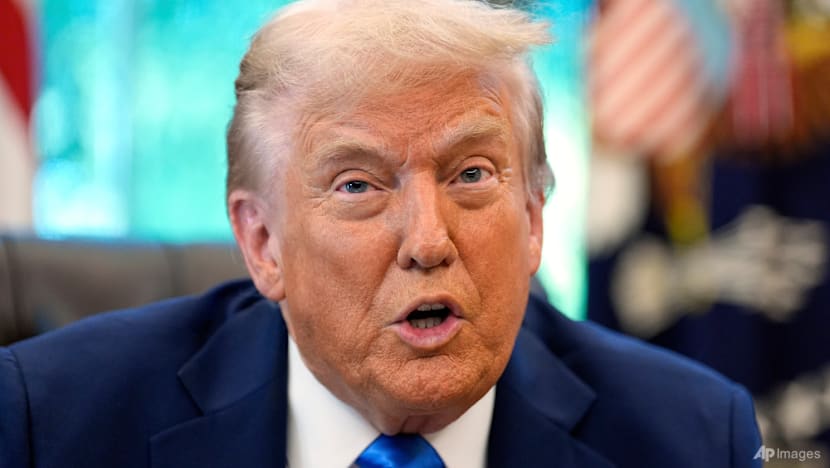
At the same time, questions remain about the viability of the new bank, with few details released so far.
How will investments and debt servicing be determined?
Will the yuan dominate or will a basket of member currencies be used? And how can the SCO bank gain credibility and ensure transparency in lending?
“The structure of the internal governance is key,” Chang said.
STARTING SMALL: HOW THE SCO BANK COULD TAKE SHAPE
An official SCO statement released hours after Xi’s speech on Sep 1 said the bloc had “decided to establish a development bank and accelerate consultations on a series of issues related to the financial institution’s operation”.
“The world has entered a new period of tumultuous change and global governance has arrived at a new crossroads,” Xi said during his address, where he also pledged US$1.4 billion in loans to SCO members over the next three years.
“The shadows of Cold War mentality, bullying, are not dissipating, and there are new challenges that are increasing, not diminishing,” Xi added.
Chinese President Xi Jinping has met with foreign ministers of the Shanghai Cooperation Organization (SCO) in Beijing. Neha Poonia reports from New Delhi and Dasha Chernyshova reports from Moscow.
Beijing has yet to provide a timeline, outline how the bank will be structured, or explain what its lending priorities and decision-making framework will look like.
But analysts told CNA they believe an SCO Bank would likely follow a familiar Chinese trajectory: starting small before gradually evolving into a more defined institution, much like the Beijing-based AIIB.
“We don’t know much at this point, but like many Chinese-led global governance initiatives and institutions, it will likely start small and grow into itself over time, developing a more definite set of functions,” Joe Mazur, a senior analyst at the Trivium China think tank in Beijing, told CNA.
“Whatever form it ultimately ends up taking, it will likely join the ranks of the AIIB and similar (Chinese-led) organisations that seek to form an alternative to Western-dominated institutions,” Mazur said.
Kun Fan, an arbitrator and associate law professor at the University of New South Wales (UNSW), told CNA that the bank’s credibility would ultimately rest on its legal architecture.
"It should also guard against dominance (of one state) and keep smaller members on equal footing, while ensuring independent tribunals and fair procedure," she said.
"Having clear legal provisions and dispute resolution clauses could provide legal certainty and give smaller member states more leverage when dealing with more powerful states or state-owned enterprises," she added.
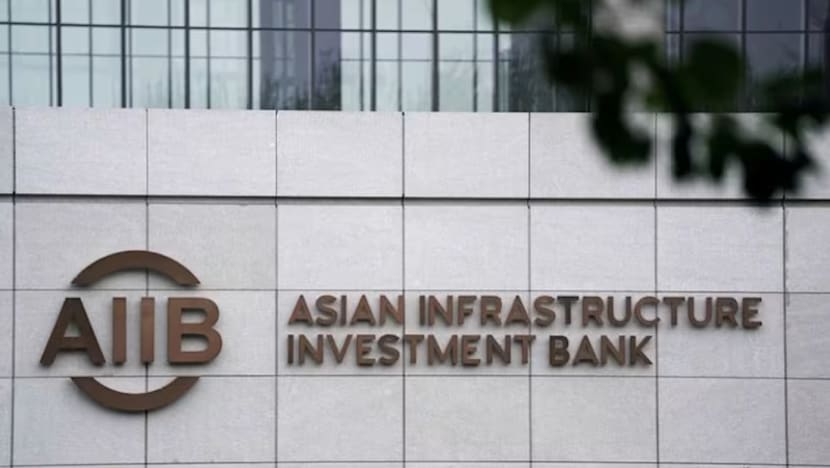
Developed with an initial focus on Asia’s infrastructure needs, the AIIB has since grown to more than 100 members, including countries like India, Singapore, South Korea, Brunei and Australia.
Since its launch, it has expanded from funding basic infrastructure to backing major projects in energy transition, urban development and digital connectivity - which include flagship projects like Indonesia's Batam-Bintan Bridge Project as well as renewable energy investments in the Maldives.
As of end-2024, the bank announced that it had approved 303 projects with total payments of US$58.8 billion in funding and also aims to increase its annual financing to US$17 billion by 2030.
The NDB, meanwhile, was established in 2015 by BRICS countries to mobilise resources for infrastructure and sustainable development projects in emerging markets and developing countries.
Originally formed by Brazil, Russia, India and China, with South Africa joining soon after, the bloc has since expanded to include Egypt, Ethiopia, Iran, the United Arab Emirates and Indonesia.
As of July 2025, the bank said it has approved US$40 billion in loans for over 120 projects, including some within China.
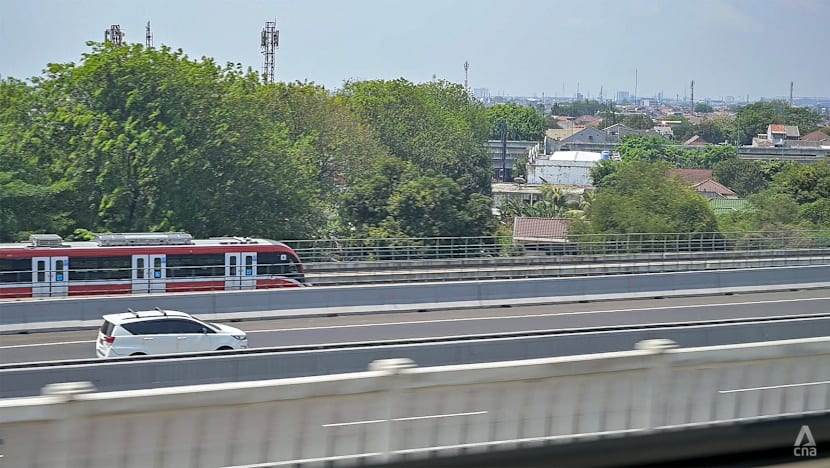
Experts expect the SCO Bank to focus heavily on infrastructure and development programmes for a start.
Chang of Fudan University described it as a natural extension of China's Belt and Road Initiative (BRI), saying early emphasis would likely be on large-scale infrastructure projects.
“Infrastructure is usually the first thing people will think about,” Chang said.
He also noted discussions were emerging around “newer core technologies” such as rare-earth minerals, artificial intelligence, digital finance, and supply-chain logistics. “That might be further down the line though,” he added.
The SCO Bank could also ultimately serve purposes beyond financing, acting as a platform for regulatory cooperation or policy dialogue outside the orbit of US-led institutions like the IMF and World Bank.
“But it remains to be seen which parties will ultimately join, fund and engage,” Chang said.
LOOSENING THE DOLLAR’S GRIP
For many members, the appeal of an SCO Bank lies in its promise to ease dependence on the US dollar, experts said.
Most international loans and trade settlements remain dollar-denominated - and for now, the US dollar remains unrivalled as the backbone of the global economy.
According to IMF data, the dollar made up nearly 60 per cent of global foreign exchange reserves in 2024 - far ahead of the euro at 20 per cent, the Japanese yen at 6 per cent, the British pound at 5 per cent and the Chinese yuan at 2 per cent.
Although dollar share has slipped from its peak of 72 per cent of reserves in 2001 as foreign reserve managers diversify into other currencies, it still remains the dominant reserve currency.
Such dominance means that when the US Federal Reserve raises interest rates, the effects ripple across the world - triggering capital outflows, weakening local currencies and increasing the cost of dollar-denominated debt.
But observers have noted that the dollar’s once unshakable grip may be loosening.
In a Xinhua commentary piece published on Jul 5, Maya Majueran, BRI director of Sri Lanka, wrote that “dollar dominance was slowly eroding” amid “multiple forces driving this transition”.
China has already been pushing bilateral currency swap deals - more than 40 worldwide - to encourage the use of the yuan in trade, investment settlement and debt repayment.
Such swaps allow central banks to exchange their currencies directly, reducing reliance on the US dollar.
Majueran said “emerging markets are diversifying their reserve portfolios, bilateral trade in local currencies is gaining momentum and the weaponisation of the dollar, particularly through sanctions, is prompting the building of parallel financial systems”.
These changes are also being “further accelerated by growing geopolitical tensions and fragmenting trade relationships”, Majueran added.
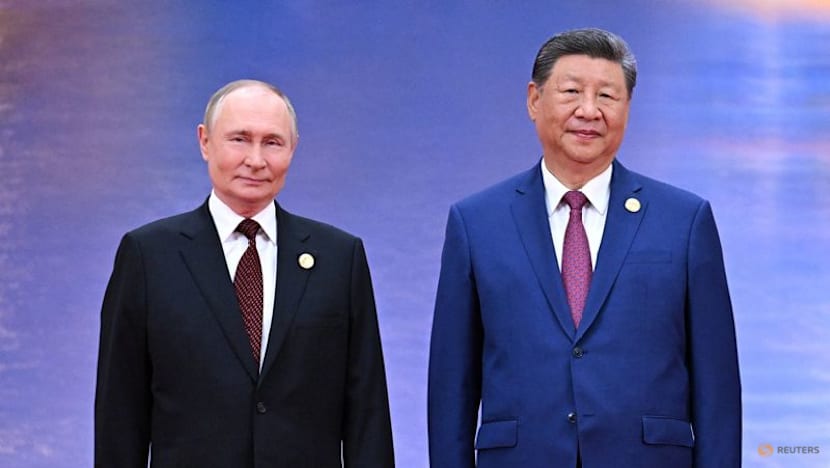
The Argentine government reached an agreement with the People’s Bank of China in 2023 - securing US$1.7 billion in yuan from a currency swap to repay part of its US$2.7 billion debt to the IMF.
The remaining US$1 billion was covered by the Development Bank of Latin America.
The yuan has also become the most popular foreign currency in Russia, surpassing the US dollar in 2023, after Western sanctions severed Moscow's access to global financial systems following its invasion of Ukraine.
At a meeting with Xi in Beijing on May 16, Russian President Vladimir Putin also revealed that "90 per cent of all payments are already made in roubles and yuan".
WHICH COUNTRIES STAND TO GAIN?
For countries under Western sanctions or financial isolation, such as Russia and Iran, an institution operating outside the dollar system could provide a crucial lifeline.
“China, being squarely in the cross-hairs of the US, certainly stands to benefit, which is why we see its prominence in initiating and pushing forward this initiative,” said Chang.
“But I think that all critical trade partners stand to benefit, including much of the ex-Soviet Republics and Southeast Asia.”
He added: “Keeping in mind that this is not just funding, but also potentially impacts currency dependence, trade, and other geopolitics, the most-dependent nations will tend to benefit the most.”
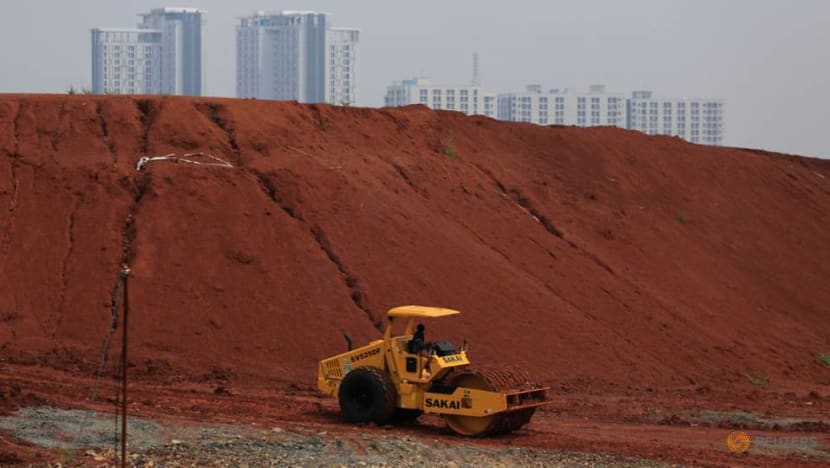
But this appeal is not confined to SCO members. Southeast Asian countries will also be paying attention, said Chong Ja Ian, associate professor of political science at the National University of Singapore. "ASEAN members would indeed look at the SCO Bank as an additional source of funding," he told CNA.
Still, too little is known about the bank to assess whether it would strengthen ASEAN’s position or risk undermining its own initiatives, Chong said.
Indonesia, he added, might be attracted if the terms are favourable, but borrowing could also “turn into economic and political problems if badly handled”.
He cited maritime tensions where China’s “nine-dash line” claims overlap with Indonesia’s exclusive economic zone near the Natuna Islands.
“Greater dependence on China could complicate these issues for Indonesia,” said Chong, adding that elsewhere in the region, countries like Vietnam and the Philippines - both with ongoing territorial disputes with China - are likely to remain cautious.
“The Philippines has had negative experiences with the BRI,” he added.
In 2023, Manila dropped Chinese loans to finance three ambitious railway projects, valued at more than US$5 billion - these included the Mindanao railway, the Subic-Clark freight railway, as well as a proposed long-haul commuter railway.
AIIB lending rates were also said to have been “significantly higher” compared to funding from Japan or South Korean official development assistance, said Philippine Senator Sherwin Gatchalian.
“That would give (Manila) reason to remain wary of an SCO bank,” said Chong.
AN ALTERNATIVE TO WESTERN-LED LENDERS?
Critics have long faulted the IMF and World Bank for imposing stringent loan conditions, including tough austerity measures, and for giving poorer members limited influence over policies that affect them.
And China has positioned its own institutions as alternatives. Last October, AIIB President Jin Liqun criticised advanced economies for erecting trade barriers, including on renewable energy goods, and warned that there was “no longer free trade” in today’s global economy.
Writing in a Sep 3 column for Xinhua, BRI Sri Lanka director Majueran said the SCO "both symbolised and boosted the unity and prosperity of Eurasia".
"It is now often the West that seeks access to the Global South's markets, resources and strategic partnerships to meet global challenges," Majueran said, adding that "the age of unipolar dominance was over".
"The SCO and the broader Global South are already laying the foundations of a new paradigm of global development - one driven by intra-South trade, investment and technological collaboration," Majueran added.
And if the SCO Bank could deliver faster approvals, fewer political conditions and financing in non-dollar currencies, it could appeal to countries frustrated with the current system, said analysts.
But scepticism remains, particularly over the transparency of Chinese-backed lending.
"That is indeed the issue," said Chang.
"This goes to funding, to how investments are determined and how debt servicing is determined, and to internal governance all of which we will need to observe over time to get a better handle."
Analysts have also noted that the yuan is still a long way from challenging the US dollar’s role as the world’s reserve currency, prompting questions over whether the SCO Bank can establish the credibility needed to rival entrenched institutions like the IMF and World Bank.
Even so, the SCO bank could offer an alternative for countries weary of dollar dependence and Western-imposed austerity, experts said.
“Right now we are seeing intention more than execution, so I’m eager to see how they really roll it out going forward,” Chang said.


















